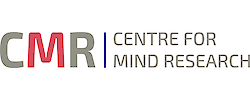Joint clinical projects
Major depressive disorder (MDD) is a common psychiatric disorder, ranking as the second leading contributor of years lived with disability. Finding the right approach for individual patients remains challenging. DAIsy will develop and bring to the market AI-supported solutions for improved diagnosis, treatment selection, monitoring with diet and activity tracking, support in behavior adjustments, and treatment response assessment. Novel AI techniques will jointly be developed to advance the AI applicability for these fragile patients by advancing techniques for large data points / patient ratios, improving explainability and uncertainty quantification.
Participation in this international research consortium on the diagnosis and treatment of depression is funded by the EU.
Further information about DAIsy can be found here.
The aim of the BMBF joint project AwareMe is to develop a modular and interactive medical technology that supports the self-management of behavioural disorders for young adults unobtrusively in everyday life. For example, body-worn medical technology for ADHD is being developed here. The symptoms relevant to the behavioural disorder are detected both in inconspicuous worn sensors and by smartphone-based experience sampling.
For more information on the AwareMe project, click here.
As a sub-project of the BMBF-funded ESCAlife joint project, ESCAlate focuses on the treatment of ADHD in young adults. The concrete goal of ESCAlate is to investigate the effectiveness of an adaptive and gradual treatment program, which is based on three different treatment methods: Psychopharmaceutical therapy, neurofeedback training and psychoeducation.
Patients with ADHD are welcome to participate in an ongoing study.
More detailed information about the ESCAlate project can be found here.
PSY-PGx is a research project aimed at the personalization of psychiatric pharmacotherapy and thereby enabling better treatment outcomes. PSY-PGx is a unique, non-commercial international initiative, carried by researchers and non-profit organizations. In first instance, psychiatric patients will be genotyped in a clinical study and their pharmacotherapy will be individualized based on their genetic characteristics. The data collected from this study will be used in the next step to develop an algorithm for personalized psychiatric pharmacotherapy. Data from European biobanks will also be used in this process. This should lead to a novel approach to genome-based, individualized psychiatric pharmacotherapy. This project is an international collaboration of clinics and research institutes worldwide, the international patient-advocacy network Global Alliance of Mental Illness Advocacy Network (GAMIAN) and the World Psychiatric Association (WPA).
For more information on the PSY-PGx project, click here.
This research project ist concerned with the validation of the clinical decision support system PGXperts. With the help of this medical product, pharmacogenetic characteristics of individual patients and interaction risk profile of psychiatric drugs are automatically provided to a treating physician. In molecular genetic studies by the Institute of Human Genetics at the University Hospital Bonn these data are automatically analyzed and used to draw conclusions about patients drug metabolism. This will enable physicians to prescribe medication that is personalized and optimized in terms of dosage, pharmacodynamics and -kinetics. Patients with a diagnosis of depression can participate in this study. The study is a joint project of HMG Systems Engineering GmbH, Fürth, the Clinic of Psychiatry and Psychotherapy, the Institute for Experimental and Clinical Pharmacology and the Institute for Medical Informatics and Statistics UKSH and the Human Genetics Institute and the Clinic of Psychiatry and Psychotherapy at the University Hospital Bonn.
ADHD treatment in adults usually consists of an drug and/or psychotherapeutic treatment, whereby the drug treatment success is usually higher than the psychotherapeutic treatment success. However, drug ADHD treatment often leads to undesirable side effects and must also be closely monitored. The development of further, effective and low-side ADHD therapy approaches therefore appears to be urgently indicated. The aim of the BMBF-funded ATTENTION project is to develop a novel medical-technical system for targeted neuromodulation of attention-associated cortical networks through electrostimulation.
More detailed information about the ATTENTION project can be found here.
The mission of the GErman NEtwork for Research on AuToimmune Encephalitis (GENERATE) is to empower cooperation between centers with clinical and scientific expertise. GENERATE will enable us to better characterize the immunopathogenesis and neuropathophysiology of the different autoimmune encephalitides while elucidating the clinical particulars, clinical courses and treatment strategies.
For more information on GENERATE click here.















